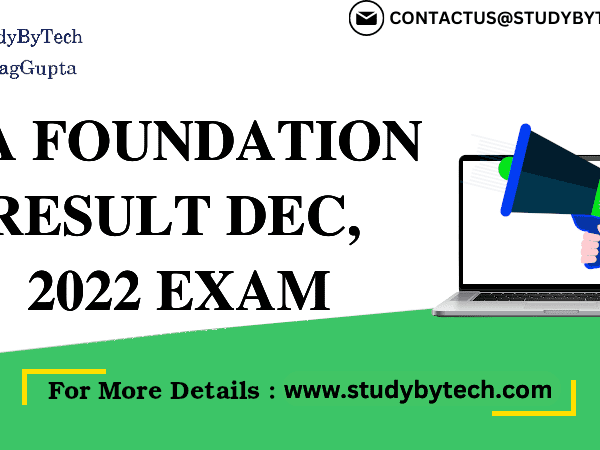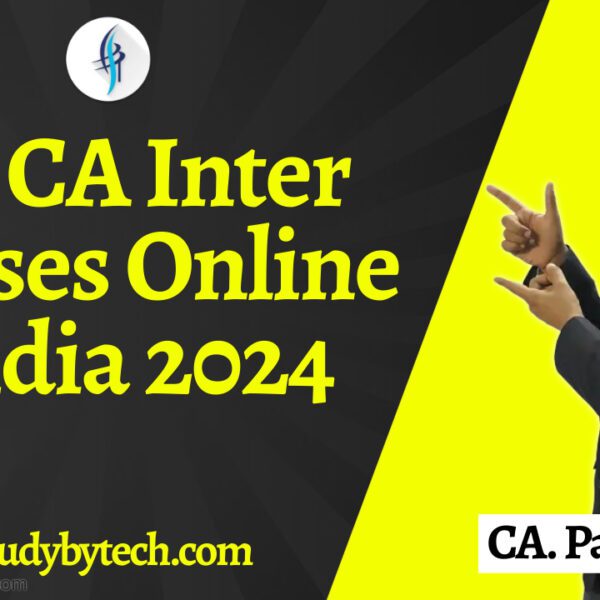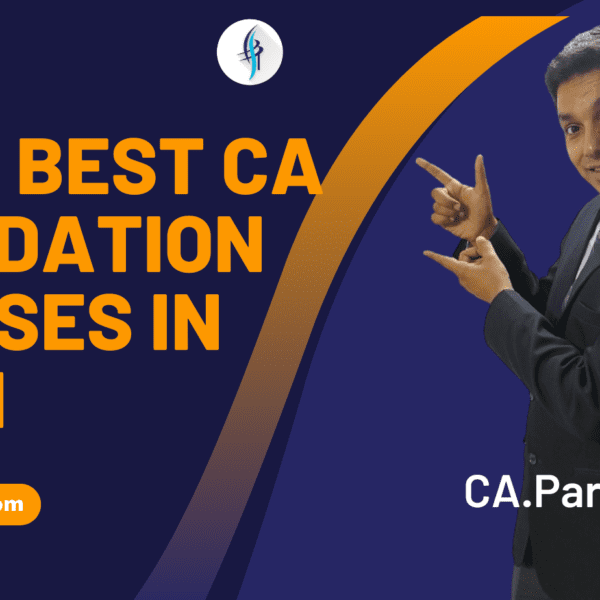The exam CA Final in the paper of Strategic Cost Management and Performance Evaluation, that is also known as IBS (Integrated Business Solutions), is quite difficult in nature with its long case studies that do not only need the technical knowledge but the strategic thinking too. The powerful part of the curriculum is the application of knowledge through case studies. However, for beginners of the course, the scenario is not that. In their eyes, the problem is too hard the answers are the same. The type of case studies which provide the examiner with a marvelous wealth of information it hence becomes a case of tossing a coin to determine an examination answer
This blog is about CA Parag Gupta who is a well-known teacher in the CA Final Strategic Cost Management. he has come up with a couple of ideas that can help you manage the long case studies in the IBS paper.
Understand the Case Before Diving In
The initial stage in solving any long case study is to correctly comprehend the scenario. Frequently, scholars question their understanding of the case itself, which eventually leads to errors and confusion further in. Here are the ten essential steps to follow when working on the case:
- Please, read the case in full first. Try to find the underlying problem or issue that is being discussed. It might be about pricing decisions, cost reduction strategies, performance evaluation, or risk management.
- Draw attention to important information. Keep on track of essential figures, crucial business targets, and the toughest points you deal with; you can make use of such data to refer to them in the course of your work.
- Emphasize the business goals. Get to know what the larger picture of the business is—what does it demand? This will guide you in the analysis and the recommendations.
Break Down the Questions
One important step that should not be missed is to comprehend the whole case before moving on to the set of questions. In the in IBS paper, a large number of questions are composed of different parts and involve detailed analysis. Follow these steps:
- Split up the problem into sub-problems. Make a decision whether the question asks you to perform a financial analysis, suggest strategic recommendations, or a combination of both
- Importance. Concentrate on the questions that will earn more marks or you believe that you can answer easily to begin with. Examinations are time-bound, and the challenge is to make sure you get through all topics by the time it is up and also to get through them when you have already gained some speed with the simpler questions.
Apply Conceptual Frameworks
The IBS paper deliberated over the management of strategic cost where cost management and decision making, performance measurement, and cost control are examined. By applying a framework, it is possible to follow a schedule to approach a case study. Several such concepts might be useful:
- SWOT Analysis for identifying strengths, weaknesses, opportunities, and threats.
- Porter’s Five Forces for analyzing forces that govern industry competition.
- Balanced Scorecard for the evaluation of performance along with financial and non-financial measures.
Applying the use of these frameworks demonstrates to the examiner the fact that you are strategic in your mindset and you are not just working with numbers. Also, these frameworks help you in the way that they enable you to break the masses of information down into smaller parts which you can easier manage.
Be Analytical, Not Just Descriptive
- One can be tempted to retell the case study’s information, but instead, examiners are looking for original independent analysis. Utilize information provided to:
- Evaluation of options and alternatives. While making recommendations, in consideration of all potential solutions, deliberation of the sides of the case should be the primary focus.
- Use numbers in an accurate way. Quantitative analysis stands central. Support your recommendations with such financial math as break-even point, ROI, and cost-benefit analysis are options that are situation-dependent.
Structure Your Answer Well
Understanding is what plays a major role in lengthy case studies. Even with a perfect analysis, an improperly structured answer can lead the examiner to question your thoughts. The answers have always had to be structured as follows:
- Introduction: Outline the main problem or decision to be made.
- Body: Put forth your analysis, using the appropriate theories or models, and do calculations if necessary.
Time Management
Long case studies can be time-consuming, yet make sure they don’t take up all your exam time. Set a specific amount of time for each question, and if time is running down you should go to the next one. You are still able to revisit the question later if necessary.
Conclusion
To deal with these types of scenarios with the CA Final IBS paper, one must have a structured approach, logical analysis and good time management skills. This way, you can handle the exam even if there is a really difficult question, confidently and increase your marks also.
FAQ’s
Failing in CA Foundation exams multiple times can be discouraging, but it doesn’t mean that you cannot become a successful Chartered Accounta
The Costing subject in the CA Final exam is considered to be one of the most important and scoring subjects. It requires a lot of hard work and dedication to master it. In this article, we will discuss why CA Final Costing is crucial for becoming a successful chartered accountant and how to prepare for it.
The CA exams are known for their rigorous standards, requiring candidates to demonstrate a deep understanding of complex financial and accounting concepts. The passing criteria are stringent, with candidates needing to score a minimum of 40 percent in each subject and 50 percent overall.
Costing is a subject that requires the application of theoretical knowledge to practical scenarios. Students often find it difficult to bridge the gap between theory and practice. The inability to apply concepts to solve practical problems is a significant hurdle that many CA Inter students face.




